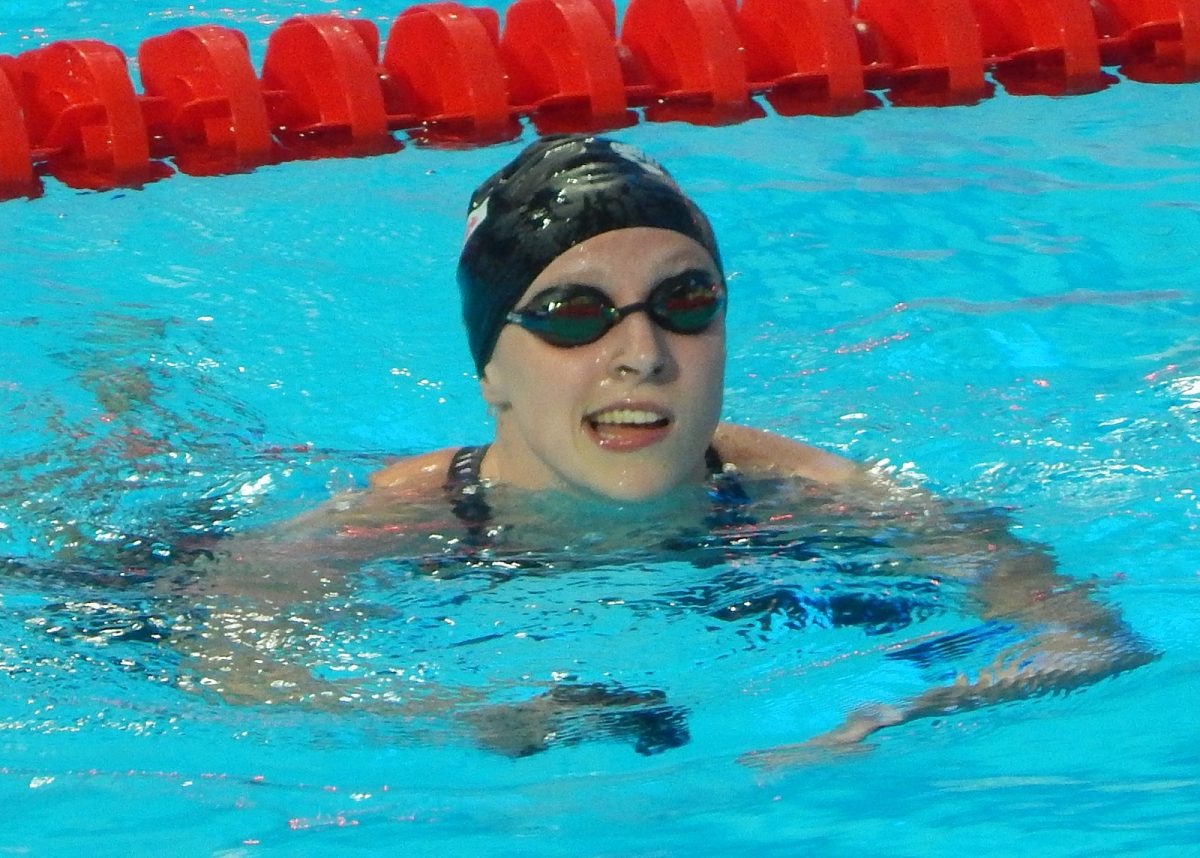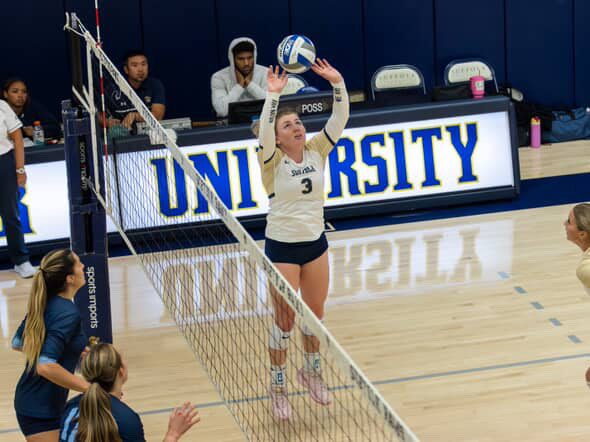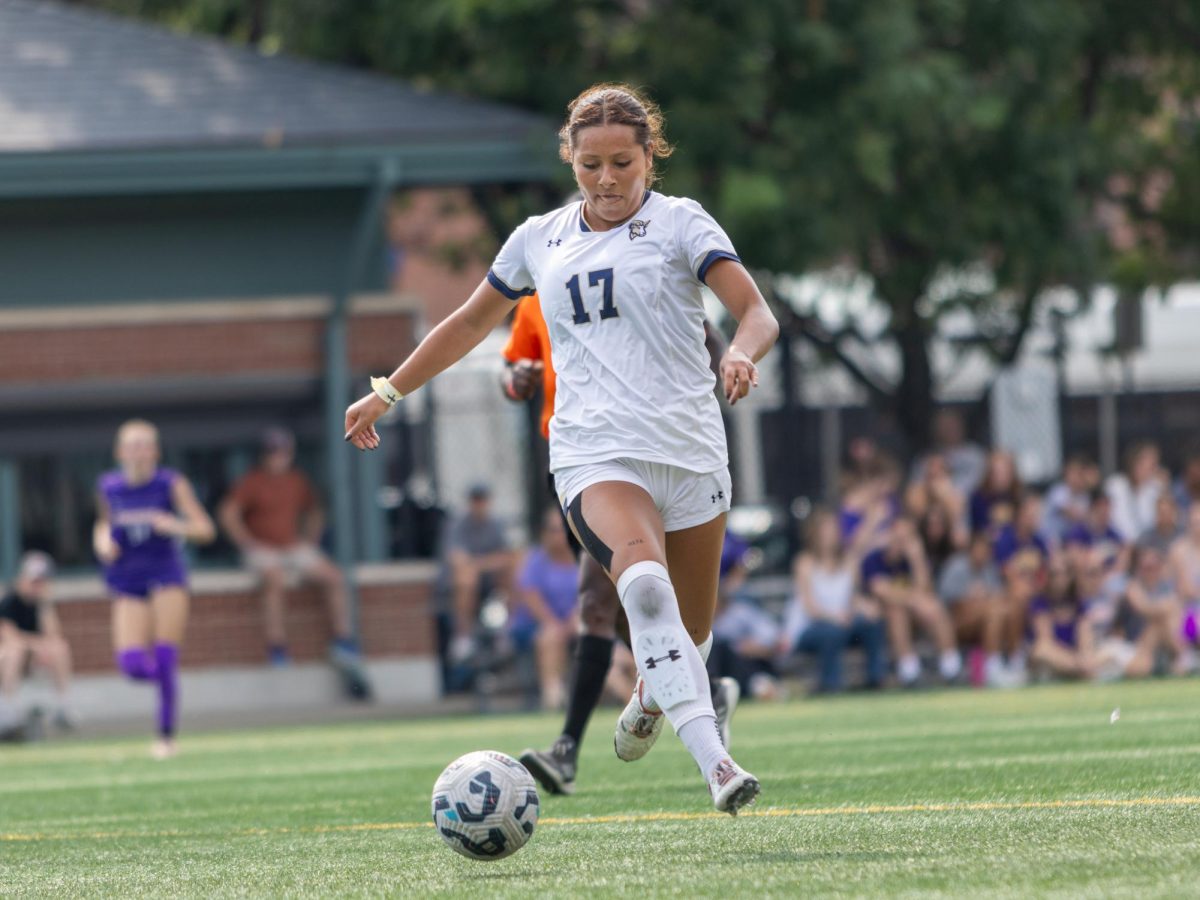How many times have you walked into a sports bar and seen a football game playing? How about a baseball game? Probably too many times to count. Now, how many times have you seen a woman’s game of any sport being displayed on those same screens? It’s unlikely that those numbers are equal.
Half of our athletes are being banished from our television screens. This cannot be the message we portray to little girls, that they can be just as skilled as any man and it is still not enough. They are told to dream big but apparently that came with terms and conditions of not dreaming bigger than a man.
The only time women manage to catch some semblance of screen time is every four years when the Olympics roll around. This year, gender equality history was made. For the first time since the start of the games, there was an equal number of men and women at the 2024 Paris Olympics, according to the International Olympic Committee.
While it might not seem like that big of a deal, this is monumental. For little girls around the world to not only see their countries represented but to also see women that look like them represented is pivotal in keeping women’s sports alive.
At this year’s Olympics, there were quite a few women athletes that finally got their flowers. Katie Ledecky, four-time U.S. Olympian for swimming, tied a 60-year-old record of the most Olympic gold medals in any sport with her ninth this summer. Ilona Maher and the U.S. women’s rugby team brought home the first Olympic medal for rugby sevens.
Maher has been circulating the news cycle for a while now. The buzz goes all the way back to the 2020 Tokyo Olympics, which she documented through social media. Now, she can be found on Dancing With the Stars’ current season. A large part of Maher’s social media consists of body positivity and the deconstructing of what social norms are perceived to be.
“I think the stereotype around a rugby player is this idea that you need to drop your femininity and play a very masculine, brutal sport,” said Maher to the AP following this year’s Olympics.
For Maher, destroying the negative narrative that surrounds women’s sports is something that comes with the job. It’s a breath of fresh air to see this duality displayed so elegantly, both femininity and masculinity coexisting.
As a society, we have been trained to be revolted by the idea of women whose lives do not revolve around femininity. Women who do not dedicate their lives to soft and fluttery dreams are ostracized. They are deemed unattractive and too masculine. It’s refreshing to see this opinion be deconstructed over time, especially from athletes, whose body can not possibly look like a model’s to achieve the world records and gold medals that they do.
We don’t only see this phenomenon in sports, but also in most of the media we consume. Celebrities and influencers are faced with this same rhetoric over and over again if they aren’t deemed feminine enough, whatever that means. Most notably among these women being Drew Afualo, a woman who has gone above and beyond to prove that girlhood is not defined by femininity or the lack of it, either.
Afualo in particular, released a book full of empowering and laughter-inducing moments. Falling in line with her content, there are many notable moments where she outlines the importance of oneself.
“Give yourself the permission to love yourself unconditionally, because there’s nothing more radical in the eyes of the patriarchy than that … and we all know how much I love pissing off terrible men,” said Afualo in her book “Loud: Accept Nothing Less Than The Life You Deserve.”
Again, notable figures in pop culture speaking up about these issues is so important. If they speak up, it brings awareness and allows for this harmful kind of talk to die out. Even if it does not have to do with sports, by fixing the problem in one area of the media cycle it paves the way for other niches to do the same.
Femininity is also directly linked to body positivity. The common concept is that bigger girls cannot be feminine, a privilege held for the small and petite. Body weight plays a big part in how people perceive you and what kind of stereotypes they apply to you, when it should not. How one carries their weight doesn’t change who they are as a person or their preferences.
A sadly common but crazy misconception is that bigger girls cannot be athletic, either. This mentality was particularly harmful against Katelyn Ohashi, a former Team USA gymnast who competed from 2003 to 2013.
After coming back to training after suffering a back injury, Ohashi was faced with distasteful and unsolicited comments on her body. In an interview with BBC, she was told she “didn’t look like a gymnast,” along with being compared to barnyard animals. These are outrageous things to say to a nationally recognized athlete.
These remarks did little for Ohashi, leading her down a dark road of an eating disorder. Though, she is not alone. Many figures of popularity who are faced with these disgusting comments tend to follow a similar path. Eating disorders are far too common, with their unsurprisingly deep ties to body shaming comments.
While it might appear dreary for women’s sports, not all hope is lost. People are standing up and pointing out these inequalities in sports. These changes are noticeable. My father is starting to watch women’s sports with the same drive he typically reserves for the football season. There is more talk of women’s sports than ever before, a shift in the right direction.
A person’s girlhood is not defined by their femininity. Even to define it seems demeaning to the term. The experience is different for everyone, there is no right or wrong way to be a woman. As much as social media and the patriarchal system would like you to believe you’re doing everything wrong, you’re not. There is nothing wrong with the way you live your life, as long as you live it the way you want.
Even spaces are being created specifically for women’s sports to flourish and finally receive their well-deserved — and overdue — time in the spotlight. In Portland, Oregon, a sports bar under the clever name of Sports Bra has become the first of its kind to be solely dedicated to showing and celebrating women’s sports. They are looking into becoming a franchise, a development that can not come to fruition soon enough.




















